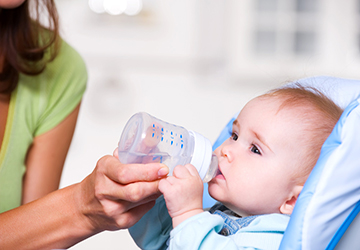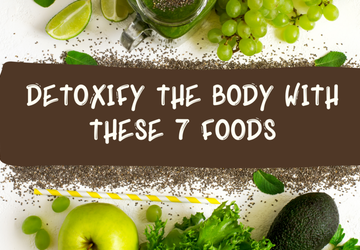By the time your child is 4 to 6 months old, you have mastered the skill of breastfeeding or bottle-feeding. Like many other aspects of parenting, things are about to change as your kid approaches the joyful milestone of being ready for solid meals. Consider the variety of flavors and textures your child will experience, from savory and creamy to sweet.
By the time your child is 4 to 6 months old, you have mastered the skill of breastfeeding or bottle-feeding. Like many other aspects of parenting, things are about to change as your kid approaches the joyful milestone of being ready for solid meals. Consider the variety of flavors and textures your child will experience, from savory and creamy to sweet.
Starting solids is the first step in discovering and exploring a vast array of flavors for your infant. Despite what some people say, you can rarely go wrong, so relax as long as you adhere to a few fundamental rules and follow your infant's lead. Here is all the information you need to know regarding your child's first Meal.
Top 10 Tips on How to Introduce Solids to Your Infant
Is your baby at the age where you want to introduce them to solid foods but need clarification about how to do it? Well, we've got you covered. Here are some tips that may help you on this new journey.

Start with Healthful, Natural Foods
In earlier times, many parents would advocate rice cereal as the child's first Meal. However, this is old advice with no sound justification. Begin with fruit or vegetable puree. Squash, sweet potatoes, peas, avocados, and bananas are all excellent options, as they are simple to mash into a smooth consistency. While purees of any kind are great, do not give your baby cow's milk or honey at this stage.
The Time is Right
Considering the timing when introducing solids to your infant is essential. Many parents usually start solids at around six months of age or when at least one or two teeth of their babies are out. Moreover, start by giving them one solid Meal a day only. This will help the babies understand and adapt to this new concept more easily. You can later begin adding to the one solid meal-a-day plan by introducing a few meals throughout the day.
Keep It Dripping
The viscosity of anything you serve your infant should be extremely runny, somewhere between a liquid and a solid, as this will be the first time they will swallow something other than milk. This can be accomplished by combining breastmilk or formula with a smooth purée. You may gradually introduce thicker, more textured purees as your infant becomes proficient at eating from a spoon.
Wherever Feasible, Select Organic
One of the most excellent methods to reduce your baby's exposure to harmful, persistent pesticides is to purchase organic food. Organic food cannot be produced with artificial growth hormones. However, it's the purest, healthiest food you can give your child. By supporting organic farming, you're also ensuring a safer system of food for generations to come.
Water Intake
When introducing solids to your baby, it might be the best time to add water to their diet. According to the American Academy of Pediatrics, giving your infant 8 ounces of water daily when they are six months old is advisable. However, many researchers strongly restrict the water intake during the 6-month and above period to 4 ounces to avoid displacing the valuable nutrition provided by the breast or formula milk. Hence, we suggest using around 4 ounces of water if your baby is still fed.
Suit Up
A silicone, plastic, or corn-based model with a tiny, soft bowl is significantly kinder on delicate gums than a silver spoon. Plastic or silicone spoons are lightweight and have a shape that is specifically designed for an infant's hand. Hence, it will help them enhance and improve their grip on it, and they will be able to enjoy their meals more. Moreover, putting a bib when your little one is about to dig into their meals is always essential. They are bound to make a mess, and the bib would protect their clothes.

Rejections
Continue to serve items baby doesn't love right away, maybe even paired with other meals that baby does appreciate. It can take a baby ten or more exposures to a food before they start to like it. The majority of babies will ultimately like most foods if you're patient. For a rookie solids eater, even bland tastes may be learned. Before accepting a new meal, babies might turn it down a few times or more. So when your child protests during dinner, don't force the issue. However, give it another shot shortly.
Know When To Stop Feeding
Knowing when to stop feeding is just as crucial as knowing when to start. Baby will know when they have finished the food when their heads turn or their mouths clench. Making your sweetheart eat is typically futile and might even lead to future food battles.
Taste the Meal you're Feeding your Child.
Since infants are tiny copies of adults, they will likely share your interests! Baby food won't have the exact amounts of either salt or sugar we're used to, but the flavor should still be pleasant. If something doesn't appeal to you, it won't appeal to your kid.
Baby's Mood
Watch the baby's behavior. While those initial feedings may be difficult for you, they are even harder for your infant. Therefore, bear in the fact that a happy and active baby is more likely to open wide for an approaching spoon, but a cranky or tired infant may only desire breast or bottle. Be adaptable if your baby seems grumpy; you may want to postpone solids and try them later at another feeding.
Conclusion
Solid feeding aims to provide your infant with an enjoyable meal experience, have a lovely connection with meals, and have fun consuming a range of nutritious foods for the rest of his life.
To make feeding time more pleasant for you and your baby, keep this in mind and modify the conditions. This might include your baby's position, the period of the day, the sort of Meal, etc. Though it may seem overwhelming, feeding an infant is simpler than appeasing sophisticated adult palates. The baby's first solid Meal may vary from cold to barely warmed to room temperature.


